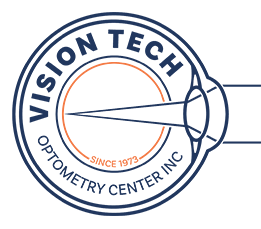
Understanding the Difference Between Vision Screenings and Comprehensive Eye Examinations
Vision screenings are a basic check of your eyesight, but they don’t provide the full picture of your eye health. A comprehensive eye exam, however, thoroughly assesses both vision and overall eye health, helping detect potential issues early—whether for children, adults, or seniors.
Vision Screenings: See What You May Be Missing
Vision screenings only measure visual acuity (how clearly you see) and typically focus on distance vision. They do not check how well your eyes work together for tasks like reading or computer use, and they can miss complex issues such as eye diseases or alignment problems. Here’s why screenings may fall short:
Limited Scope: Screenings generally focus on distance vision, missing other important aspects like near vision, eye alignment, and visual processing.
Inconsistent Results: Results can vary based on who conducts the screening and the criteria used, potentially leaving vision issues undetected.
False Sense of Security: Passing a screening with 20/20 vision doesn’t rule out conditions like amblyopia (lazy eye) or eye muscle imbalances.
Missed Conditions: Conditions such as amblyopia can go unnoticed unless a comprehensive exam is performed.
Delayed Care: Many who need professional care after a screening don’t get it right away, with delays in follow-up exams.
Comprehensive Eye Examinations: A Thorough Look at Your Eye Health
A comprehensive eye exam provides a full evaluation of your eye health using specialized tools and techniques. It includes the following:
Refractive Testing: Checks for nearsightedness, farsightedness, and astigmatism.
Visual Acuity: Tests near and far vision for tasks like reading, driving, and using a computer.
Focusing Skills: Ensures your eyes can focus on objects and shift focus easily, which is important for reducing eye strain.
Eye Alignment and Movement: Assesses how well your eyes work together, which is crucial for tasks like reading and driving.
Binocular Fusion: Ensures both eyes work together to create a single image. Poor eye teaming can cause headaches and fatigue.
Color Vision: Checks color perception, especially important for children and adults in color-dependent professions.
Ocular Health: Examines your eyes for conditions like glaucoma, cataracts, and signs of health issues like diabetes or high blood pressure.
Visual Perception: Assesses how well you interpret depth and visual cues, which impacts everything from learning to navigating tasks.
Why Early Eye Exams Matter
Early detection through comprehensive eye exams ensures children are ready to learn, and helps adults detect age-related conditions like presbyopia (the need for reading glasses) or cataracts. Many eye diseases, such as glaucoma, develop without noticeable symptoms, making regular exams crucial to maintaining eye health at every age.
The Bottom Line
While vision screenings can catch basic issues, they can’t replace a comprehensive eye exam. Regular eye exams are essential for clear vision, preventing eye diseases, and catching issues early. Schedule an eye exam today to maintain your eye health and ensure the best care for you and your family.







